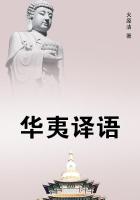On the 10th of July she appeared before the Gers Assize Court, held at Auch.The President was M.Donnoderie.Counsel for the prosecution, as it were, was the Procureur du Roi, M.Cassagnol.Mme Lacoste was defended by Maitre Alem-Rousseau, leader of the bar of Auch.
The case aroused the liveliest interest, people flocking to the town from as far away as Paris itself--so much so that at 6.30 in the morning the one-time palace of the Archbishops of Auch, in the hall of which the court was held, was packed.
The accused were called.First to appear was Joseph Meilhan.He was a stout little old boy of sixty-six, rosy and bright-eyed, with short white hair and heavy black eyebrows.He was calm and smiling, completely master of himself.
Mme Lacoste then appeared on the arm of her advocate.She was dressed in full widow's weeds.A little creature, slender but not rounded of figure, she is described as more agreeable-looking than actually pretty.
After the accused had answered with their names and descriptions the acte d'accusation was read.It was a long document.It recalled the circumstances of the Lacoste marriage and of the death of the old man, with the autopsy and the finding of traces of arsenic.It spoke of the lowly household tasks that Mme Lacoste had performed with such goodwill from the beginning, and of the reward for her diligence which came to her by the ****** of a holograph will in which her husband made her his sole heir.
But the understanding between husband and wife did not last long, the acte went on.Lacoste ardently desired a son and heir, and his wife appeared to be barren.He confided his grief to an old friend, one Lespere.Lespere pointed out that Euphemie was not only Lacoste's wife, but his kinswoman as well.To this Lacoste replied that the fact did not content him.I tell you on the quiet,'' he said to his friend, I've made my arrangements.If SHE knew--she's capable of poisoning me to get herself a younger man.'' Lespere told him not to talk rubbish, in effect, but Lacoste was stubborn on his notion.
This was but a year after the marriage.It seemed that Lacoste had a melancholy presentiment of the fate which was to be his.
It was made out that Euphemie suffered from the avarice and jealousy of her old husband.She was given no money, was hardly allowed out of the house, and was not permitted even to go to Vespers alone.And then, said the accusation, she discovered that her husband wanted an heir.She had reason to fear that he would go about getting one by an illicit association.
In the middle of 1842 she overheard her husband bargaining with one of the domestics.The girl was asking for 100 pistoles (say, L85), while her husband did not want to give more than 600 francs (say, L24).
Euphemie Verges had no doubt,'' ran the accusation, that this was the price of an *****erous contract, and she insisted on Marie Dupuys' being sent from the house.This was the cause of disagreement between themarried pair, which did not conclude with the departure of the servant.''
Later another servant, named Jacquette Larrieux, told Mme Lacoste in confidence that the master was trying to seduce her by the offer of a pension of 2000 francs or a lump sum of 20,000.
Euphemie Verges, said the accusation, thus thought herself exposed daily, by the infidelity of her husband, to the loss of all her hopes.Also, talking to a Mme Bordes about the two servants some days after Lacoste's death, she said, I had a bad time with those two girls! If my husband had lived longer I might have had nothing, because he wanted a child that he could leave everything to.''
The acte d'accusation enlarged on the situation, then went on to bring in Joseph Meilhan as Euphemie's accomplice.It made him out to be a bad old man indeed.He had seduced, it was said, a young girl named Lescure, who became enceinte, afterwards dying from an abortion which Meilhan was accused of having procured.It might be thought that the society of such a bad old man would have disgusted a young woman, but Euphemie Verges admitted him to intimacy.He was, it was said, the confidant for her domestic troubles, and it was further rumoured that he acted as intermediary in a secret correspondence that she kept up with a young man of Tarbes who had been courting her before her marriage.The counsels of such a man were not calculated to help Mme Lacoste in her quarrels with her unfaithful and unlovable husband.
Meanwhile M.Lacoste was letting new complaints be heard regarding his wife.Again Lespere was his confidant.His wife was bad and sulky.He was very inclined to undo what he had done for her.This was in March of 1843.
Towards the end of April he made a like complaint to another old friend, one Dupouy, who accused him of neglecting old friends through uxoriousness.Lacoste said he found little pleasure in his young wife.He was, on the contrary, a martyr.He was on the point of disinheriting her.
And so, with the usual amount of on dit and disait-on, the acte d'accusation came to the point of Lacoste at the Riguepeu fair.He set out in his usual health, but, several hours later, said to one Laffon, I have theshivers, cramps in the stomach.After being made to drink by that --- Meilhan I felt ill.''
Departing from the fair alone, he met up with Jean Durieux, to whom he said, That ---of a Meilhan asked me to have a drink, and afterwards I had colic, and wanted to vomit.''
Arrived home, Lacoste said to Pierre Cournet that he had been seized by a colic which made him ill all over, plaguing him, giving him a desire to vomit which he could not satisfy.Cournet noticed that Lacoste was as white as a sheet.He advised going to bed and taking hot water.Lacoste took the advice.During the night he was copiously sick.The old man was in bed in an alcove near the kitchen, but next night he was put into a room out of the way of noise.















